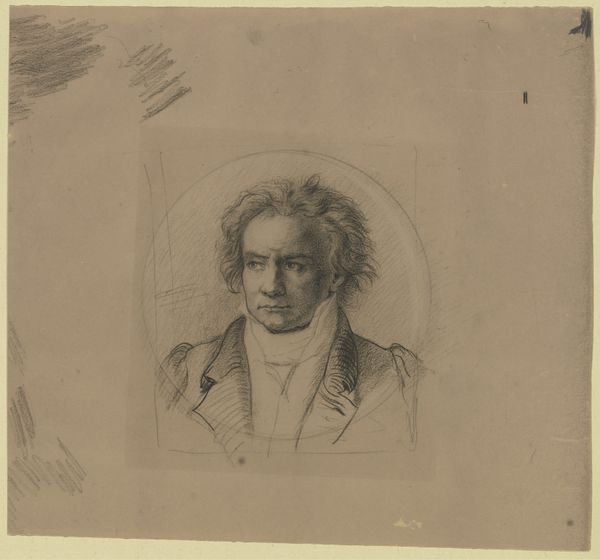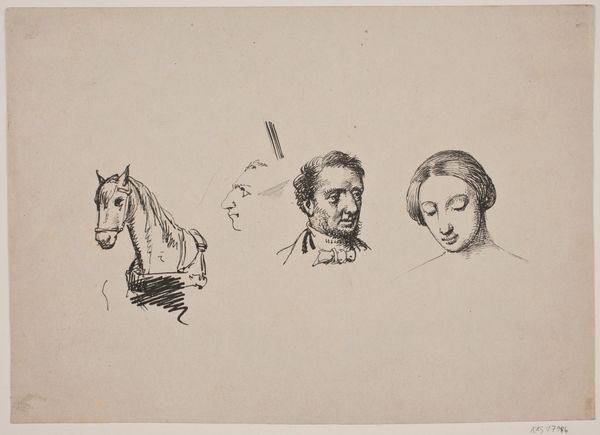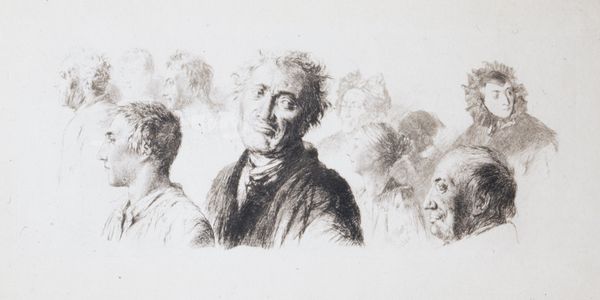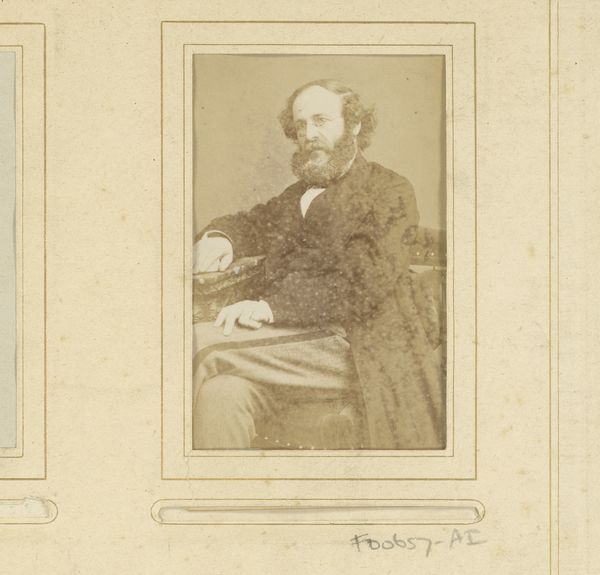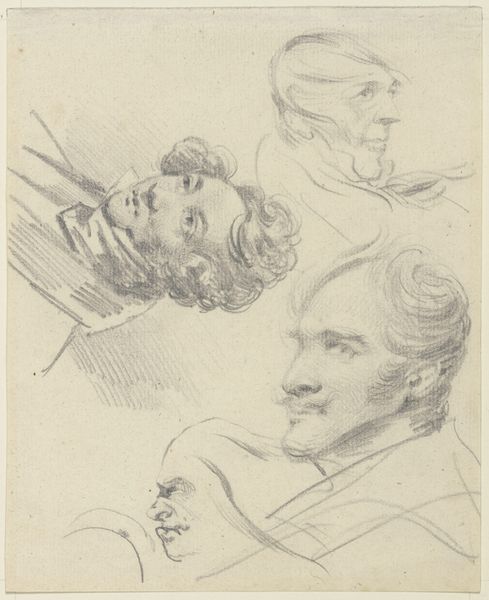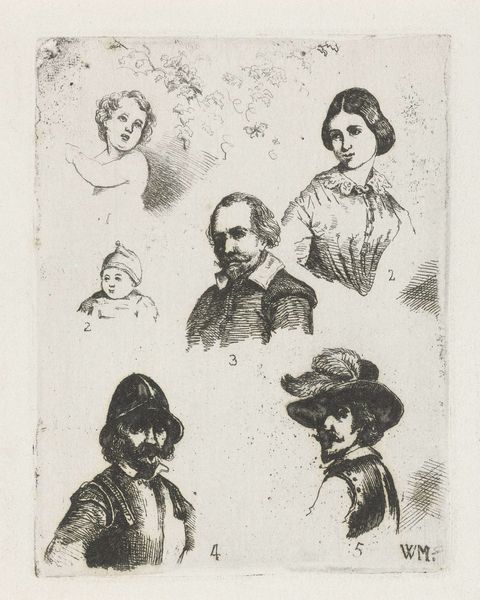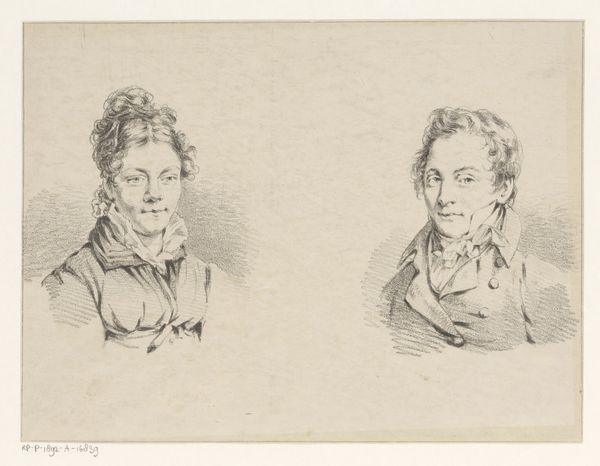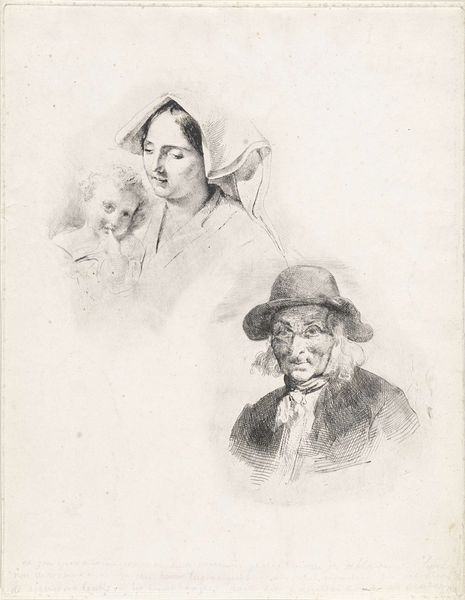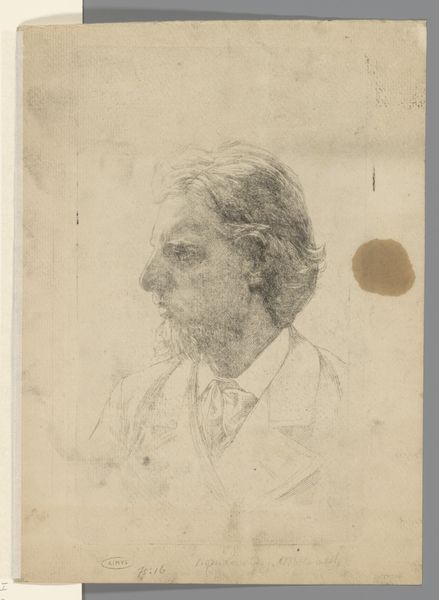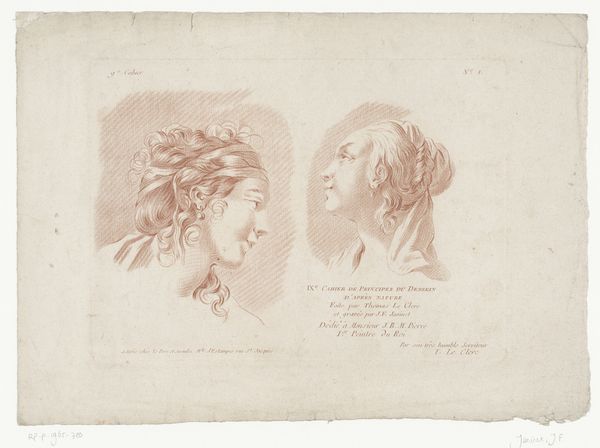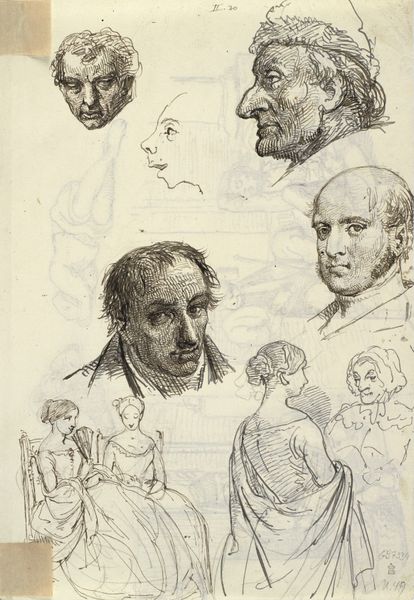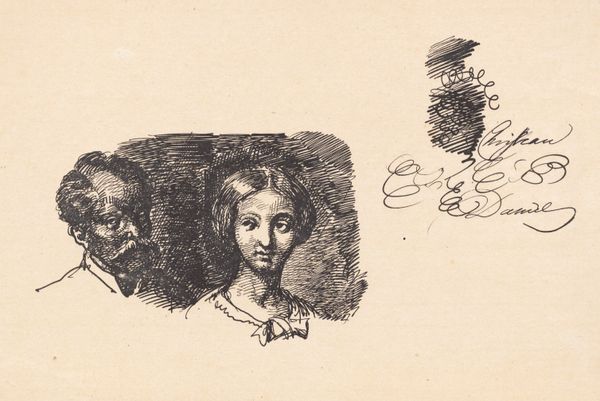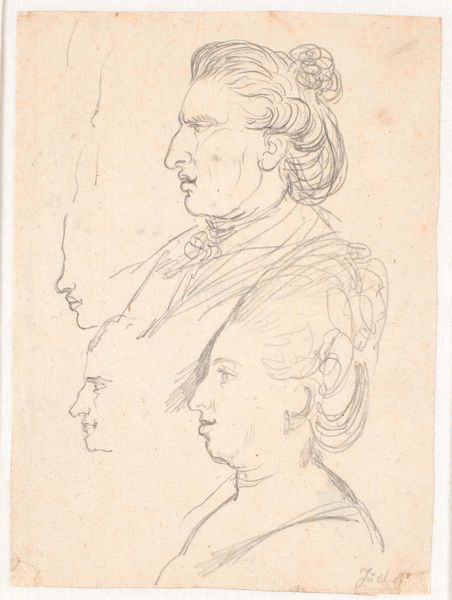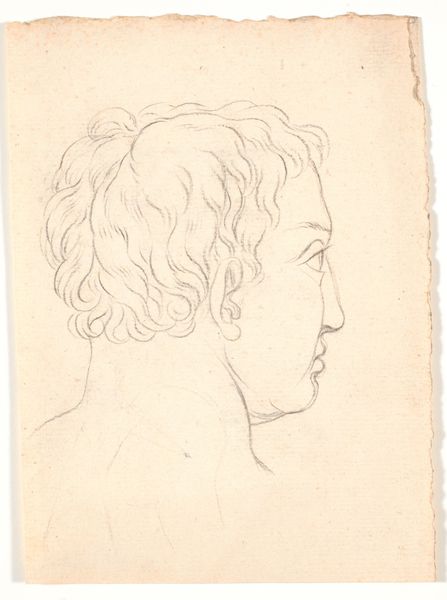
Blad med tre portrætter: Bagermester Købke, Sophie Krohn og N. Feilberg 1832 - 1835
0:00
0:00
drawing, lithograph, print, graphite, pen
#
portrait
#
pencil drawn
#
drawing
#
lithograph
# print
#
pencil sketch
#
charcoal drawing
#
pencil drawing
#
graphite
#
pen
#
portrait drawing
#
northern-renaissance
Dimensions: 172 mm (height) x 272 mm (width) (bladmaal)
This is a lithographic sheet of portraits, made by Christen Købke in Denmark in the early 19th century. It depicts a baker, a woman, and a man named Feilberg. Købke was a key figure of the Danish Golden Age, a period of intense national pride and cultural production. While history painting was the most prestigious genre, portraiture was the most common way for artists to make a living. This sheet is a great example of portraiture's social function at the time, allowing likenesses to be circulated among a growing middle class. You can see how the artist uses line and shading to capture the likenesses of his subjects, paying close attention to their individual features and expressions. We can also learn a lot from their dress and hairstyles, revealing social class and political affiliation. These small details are vital for the art historian. We can learn more about the artist and his subjects by looking at archival records. What role did they play in the society of the time? What institutions were they involved in? How were they connected? By addressing these kinds of questions, we can better understand the meaning and significance of this artwork.
Comments
No comments
Be the first to comment and join the conversation on the ultimate creative platform.
